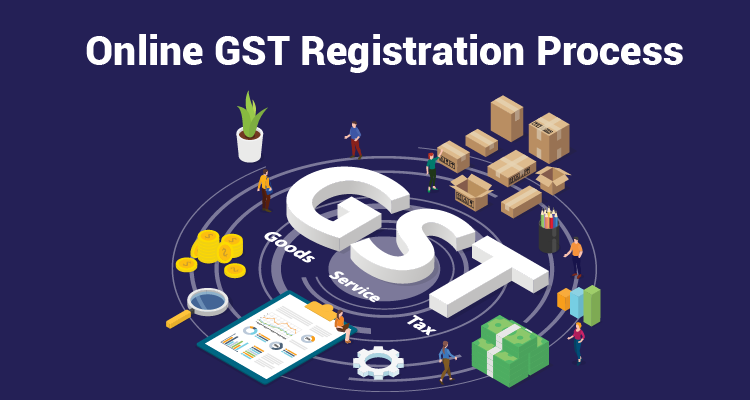Browsing the Intricacies of GST Registration: Expert Tips and Best Practices for Easier Compliance
From deciphering registration requirements to harnessing technological tools for structured procedures, the trip in the direction of smoother GST compliance is multifaceted and nuanced. Stay tuned to discover vital methods and insights that can help services guide through the complexities of GST enrollment with finesse and confidence.
Comprehending GST Registration Requirements

Along with turn over thresholds, services taking part in interstate sales or offering taxable solutions might also be called for to sign up for GST, even if their turn over is listed below the recommended limitation (Singapore GST Registration). Understanding these requirements and limits is crucial to prevent penalties and ensure smooth procedures within the legal framework
Furthermore, businesses should gather and prepare the required paperwork, such as proof of identity, address, business unification, and bank account details, prior to initiating the GST enrollment process. Stopping working to provide precise details or satisfy the enrollment due dates can cause fines or various other legal consequences. Services should stay educated concerning the specific GST registration demands relevant to their operations to preserve compliance and stay clear of potential problems.
Organizing Essential Paperwork
Businesses beginning on the GST enrollment process must thoroughly assemble and arrange the important documentation required for entry. The essential records generally required for GST registration include evidence of organization registration or unification, identity and address evidence of business proprietors or companions, financial institution account information, evidence of primary location of service, and consent kinds. Making certain that these documents are readily available and organized can simplify the enrollment procedure and prevent denials or delays.
To efficiently organize important documentation, organizations need to produce a centralized system for storing and classifying the needed paperwork (Singapore GST Registration). Utilizing electronic storage solutions can aid keep simple access and ensure that records are safely stored. Furthermore, establishing a list of all needed documents can act as a handy tool to track what has actually been gathered and what is still required for submission

Leveraging Innovation for Effectiveness
Enhancing functional performance with technical integration is extremely important for modern organizations navigating the complexities of GST enrollment. One of the key methods technology can help in GST enrollment is through the use of automated software program services.
In addition, technology can assist in seamless communication with tax obligation authorities. Online websites and communication devices enable businesses to send records, fix queries, and get updates in an extra reliable manner. This not only accelerates the enrollment process however likewise aids in maintaining clear and dependable communication with the relevant authorities.
Additionally, cloud-based storage options give a secure system for businesses to store and gain access to their monetary data, making sure conformity with GST record-keeping demands. By streamlining information storage and automating processes, organizations can improve their general efficiency and precision in GST registration procedures.
Proactive Compliance Monitoring

To ensure efficient proactive compliance tracking, companies ought to establish robust interior controls, conduct regular audits, and take advantage of automation tools for real-time monitoring of GST transactions. Normal training sessions for workers on GST compliance demands can also aid in producing a society of compliance within the company. Furthermore, involving with tax professionals or professionals can supply beneficial insights and advice on browsing intricate GST policies.
Engaging With Professional Experts
Engaging skilled tax experts can considerably strengthen a company's understanding and conformity with intricate GST policies. Specialist consultants bring a riches of expertise click here for more info and experience to the table, helping services browse the complexities of GST registration with convenience. By leveraging their experience, business can make sure accurate filings, lessen the risk of errors, and stay current with the most up to date governing changes.
When involving with expert professionals, it is important to select experts with a strong track document in GST conformity (Singapore GST Registration). Look for specialists who have a deep understanding of the appropriate regulations and laws, as well as experience collaborating with services in your sector. Reliable interaction is type in this partnership, so make sure to clearly define your expectations and establish regular touchpoints to go over progression and resolve any problems
Additionally, specialist specialists can offer useful insights and guidance on optimizing your tax strategy, identifying possible cost-saving possibilities, and simplifying your conformity procedures. Generally, buying professional consultancy solutions can go a lengthy means in guaranteeing smoother GST conformity and staying clear of expensive mistakes.
Final Thought
To conclude, navigating the intricacies of GST enrollment calls for a complete understanding of the demands, organization of important documentation, leveraging modern technology for effectiveness, proactive conformity tracking, and engagement with specialist specialists. By following these best techniques, services can ensure smoother conformity with GST guidelines and prevent potential charges or fines. It is necessary to remain educated, positive, and persistent in taking care of GST enrollment to preserve compliance and promote monetary stability.
To guarantee compliance with Visit Your URL tax obligation guidelines, businesses must thoroughly understand the complex demands for GST registration. Item and Solutions Tax Obligation (GST) is a value-added tax levied on the majority of items and services in a country, making it critical for services to register for GST to stay clear of legal effects.Additionally, companies should collect and prepare the necessary paperwork, such as evidence of identification, address, business consolidation, and financial institution account information, before initiating the GST enrollment procedure. Businesses ought to remain educated about the particular GST enrollment requirements appropriate to their procedures to keep compliance and avoid potential concerns.
The key files normally required for GST this post enrollment consist of evidence of organization registration or identity, address and incorporation proofs of the business owners or partners, bank account details, proof of primary location of service, and permission types.